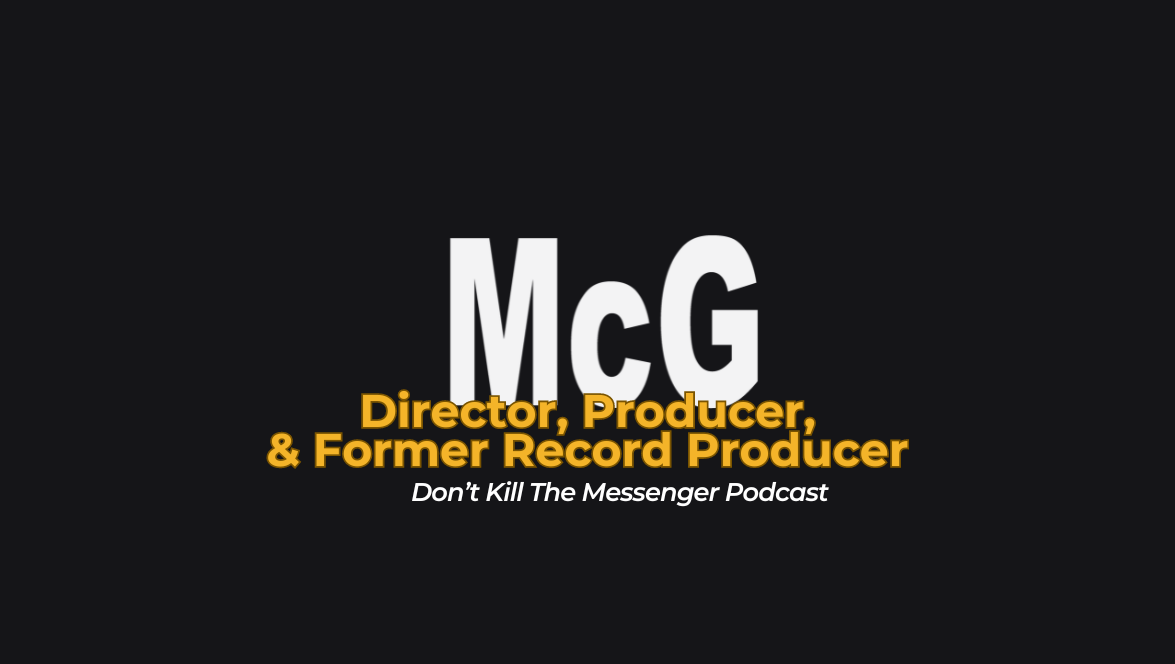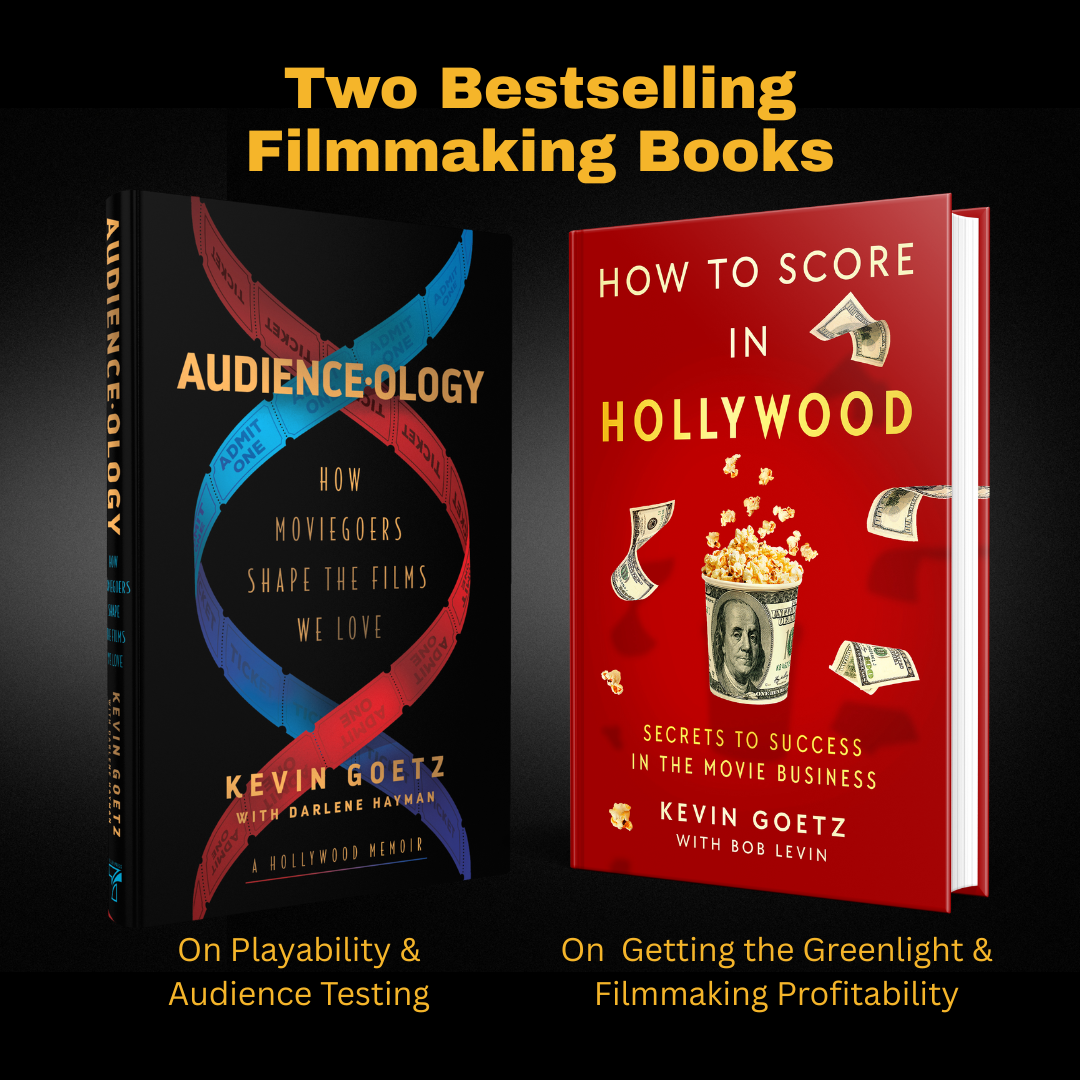
Don’t Kill the Messenger welcomes blockbuster director and producer, McG.
In this episode of “Don’t Kill the Messenger,” Kevin Goetz sits down with director and producer, Joseph McGinty Nichol, better known as McG. They discuss McG’s journey in the entertainment industry.
McG exploded on the scene with his directorial debut, Charlie’s Angels, which had, at the time, the highest-grossing opening weekend for a directorial debut. Through his production company, Wonderland Sound and Vision, McG has overseen the production of films and television shows such as Terminator Salvation, This Means War, We Are Marshall, and Family Switch along with The OC, and Turner and Hooch for television. In this personal conversation, McG also touches on his struggles with agoraphobia, and the importance of audience feedback in the filmmaking process.
Kevin Goetz on McG:
“You have extraordinary EQ. You are blessed with it. It is definitely a superpower of yours. And I am so glad that you opened up to me today and shared your stories and people are going to really respond to this. You are a very special man in my life, and I so respect you and your talent.”
First-Time Director with a Huge Budget
McG shares his experience directing his first full-length feature film, Charlie’s Angels, and how Drew Barrymore’s support was crucial in securing the job. However, the studio had doubts about his direction, as McG reveals:
I acted out the whole movie in real-time. I did all three parts. I stood up on the table and did it. Amy and Lucy were looking at me like I was outta my mind. Arms crossed, terrible nonverbals, shaking their head like, this guy’s dead to us. Drew’s there cheering me on. And then begrudgingly at the end, it was a real moment of Drew’s like he’s doing it or I’m not. And begrudgingly they hired me. And then the rest is Hollywood history as they say. And it worked out. And I was nearly fired off that movie six, eight times.
Living with Agoraphobia and Panic Attacks
McG opens up about his struggles with agoraphobia and how it affected his career, including being fired from Superman Returns. He shares:
I couldn’t get on the plane. That night I got fired. Tough, tough call. Ari Emanuel comes over to my house to share the news but also to stand by my side to Ari’s credit, it was a real standup moment that I’ll always owe him for. Got a letter the next day from the head of legal at Warner’s. These people are all my dear friends saying, we reserve the right to sue you for the damages you’ve caused to the film by not telling us about your problem. And that ultimately got me to limp in to see these two women at UCLA, one a psychiatrist, one a behavioral therapist that helped me start to put one foot in front of the other and start to try to overcome this disorder.
Music Videos and Style in Filmmaking
Kevin and McG discuss how music videos have influenced filmmakers like McG, Spike Jonze, and David Fincher, helping them develop unique styles and voices in the industry. McG explains, “It’s so insightful that you bring that up because what a class that was in the nineties and the way it would work was a record label would send out a song, the new Closer by Nine Inch Nails. And Fincher would write on it, Spike would write on it, I would write on it. F. Gary Gray would write on it. Hype Williams, Ratner, all these people that were part of this group, Francis Lawrence. And you can imagine how different the takes would be and how the final expression of what that is for the artist was it was all over the place. What you get from Michael Bay versus what you get from Spike Jonze, Michel Gondry. I mean those are really different expressions.”
The Secret to Success: Audience Testing
McG reveals one of his secrets to success: working with Kevin Goetz and his audience testing process, which has helped him improve his films and connect with viewers.
McG on listening to the audience:
If you know how to incorporate that invaluable feedback, you can improve your film to such a degree that it’s to everyone’s benefit, most of which the audience.
Incorporating Audience Feedback on We Are Marshall
McG recalls a specific audience feedback moment that led to a significant change in “We Are Marshall,” highlighting the importance of listening to, learning from, and respecting the audience. He shares, “We are Marshal. I completely changed the manner in which the plane crashed because of you. The inciting incident of the whole film’s a tragic film. Football teams flying home from a game, the plane crashes, they lose the whole football team. The town builds itself back up from the ashes. And you and I are working on that movie and I overdid it. The plane crash was too violent. It was taking people out of it. And the way I ultimately expressed that was probably five or six frames. And we talk about there’s 24 frames in a second movie. So it’s very, very brief. This five or six, just the beginnings of it. And I got it out and you gave me that tip and it revolutionized the movie. And the movie scored far better because of it.”
Mentors and Influences
McG discusses his primary filmmaking influences, including Alfred Hitchcock and Quentin Tarantino. He also mentions a high school psychology teacher who played a significant role in his personal growth and career path.
McG on Alfred Hitchcock:
And then speaking of camera, I mean, you look at Rope, which they had to hide some cuts ’cause the film would run out, but meant to be a single shot. And I would just marvel at that whole thing. And to this day, I still try to build in one big oner in every movie I do.
The interview highlights the unique bond between the filmmaker and the audience researcher, showcasing how their collaboration can elevate a film’s success. The pair close by discussing McG’s upcoming projects, Way of the Warrior Kid and Uglies with Joey King. For the full conversation, check out the podcast episode here. And let us know your thoughts on the episode in the comments!
Don’t Kill the Messenger, hosted by movie and entertainment research expert Kevin Goetz, brings his book Audienceology to life. This bi-monthly podcast takes a peek behind the filmmaking curtain as Kevin talks with famous filmmakers, studio executives, stars, and other creatives about movies, filmmaking, audience test screenings, and much more.
For more information about McG:
Wikipedia: https://en.wikipedia.org/wiki/McG
Instagram: https://www.instagram.com/mcgfilm/
For more information about Kevin Goetz:
Website: www.KevinGoetz360.com
Audienceology Book: https://www.simonandschuster.com/books/Audience-ology/Kevin-Goetz/9781982186678
Facebook, Twitter, Instagram: @KevinGoetz360
Linked In @Kevin Goetz
Screen Engine/ASI Website: www.ScreenEngineASI.com






